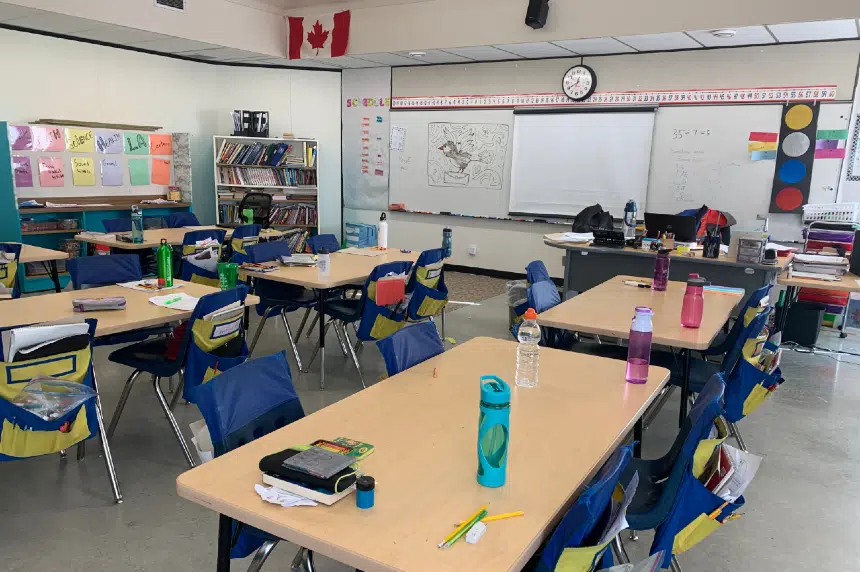COVID-19 has changed where and how students learn, and how their knowledge is tested.
Since the pandemic hit, standardized tests have essentially been put on hold as a way to help support students completing their studies in unprecedented circumstances.
But Michael Zwaagstra, a public school teacher, author and senior fellow at the Fraser Institute, thinks this is weakening the education system. Zwaagstra wants to see stronger standardized testing in Canadian schools, a position he explained in a recent piece, titled The Decline of Standardized Testing in Canada, for the Fraser Institute.
He said the study came about because he thought it was an important time to take a look at standardized testing across the country, as Canada slowly emerges from the COVID-19 pandemic.
Zwaagstra told Gormley that a strong push by teachers’ unions is trying to make sure standardized testing doesn’t return to the provinces like Saskatchewan and Manitoba that have put it on hold.
But Zwaagstra maintains that these forms of testing are important.
Standardized tests are exams that are administered to students to complete at the same time and during the same length of time allotted. The tests feature the same questions, are administered with consistent instructions, and are scored in some centralized way across the province.
They differ from teacher-created tests, which are created individually by teachers and vary by educator and school.
“There’s basically no standardized testing going on right now in Saskatchewan,” Zwaagstra said, adding that he strongly believes both forms of adjudication are needed for students.
He said standardized tests help provide data and insight on whether teachers are covering the full provincial curriculum and expose areas where students are not performing well or excelling. That can help the province advance students by understanding where more help is needed and examining success stories to replicate in other areas.
“You need to keep a strong emphasis on the teacher-created tests because the teachers need to take local circumstances into account, but you also need that broader snapshot of how students are doing across the province,” Zwaagstra said.
In Saskatchewan, the province’s policy in grade 12 courses requires any non-accredited teacher — defined as a teacher without at least two years of experience teaching a subject — must have students write standardized exams at the end of their course. Accredited teachers may create their own exams to administer.
Zwaagstra admitted the process is unusual in Saskatchewan, especially because it creates a divide between the urban and rural, as many new teachers will spend the first few years of their career in rural areas to gain experience, then move to urban centres for work.











